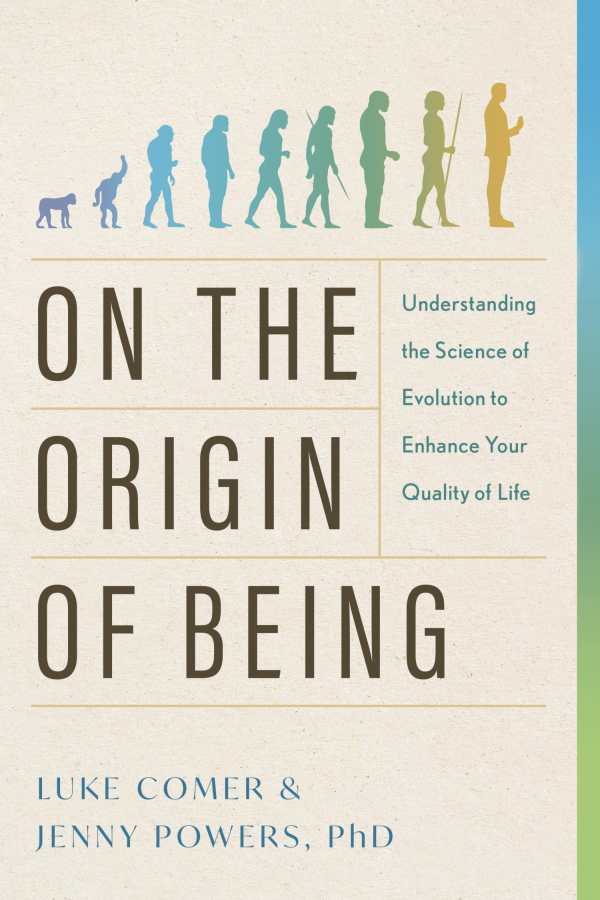On the Origin of Being
Understanding the Science of Evolution to Enhance Your Quality of Life
- 2024 INDIES Finalist
- Finalist, Health (Adult Nonfiction)
Looking back to human ancestors as exemplars of healthy living, On the Origin of Being seeks the causes of a number of contemporary ailments and points to a more connected path forward.
Luke Comer and Jenny Powers’s On the Origin of Being is an enlightening science book that delves into deep time for answers about what it means to be human. It suggests methods for reuniting modern humans with their evolved natures.
Examining the nature of evolved humanity from economic, sociopolitical, biological, and philosophical lenses, this is a multifaceted investigation of the chasm between the environments in which humans evolved and the modern world. References to archaeology, anthropology, and psychology are used to show what people’s distant ancestors ate, how they procured food, when and how well they slept, and how long they spent working to survive. In addition, the book distinguishes contemporary human needs from those of people’s distant ancestors and closest living primate relatives, tracing human history to note that people are “so far removed from our indigenous ecosystems, foodways, and lifestyles that they could never return to hunting and gathering.” Illuminating the workings of the agricultural and industrial revolutions and the subsequent formation of class systems based on land ownership, it sheds light on how modern society evolved and makes recommendations for reconnecting to ancestral knowledge in the name of improved health.
In addressing contemporary health, medical papers from renowned journals detailing the dangers of sedentary, high-stress lifestyles are cited, supporting the book’s claim that modern lifestyles are the cause of ailments like cardiovascular disease, diabetes, and declining mental health. To contextualize such profound changes in the human lifestyle, there are also comparisons between the sleeping, eating, and working habits of modern city-dwelling humans and those of contemporary hunter-gatherer tribes. Interviews with members of the Kalahari San of Namibia, the Hadza of Tanzania, and the Tsimane of Bolivia point to communal health qualities like excellent sleep and a lack of insomnia. Such anecdotes are illuminating and exist in stark contrast to the shared examples of the diets, sleep cycles, and working hours of those whose lives are divorced from nature. Although the book’s history of evolutionary biology is brief, compressing millions of years of evolution into the span of several chapters, it is also accessible, laid out in an intelligible manner despite the book’s transcendence of linear time.
On the Origin of Being is a captivating science text that recommends becoming familiar with ancestral foodways and habits in order to thrive.
Reviewed by
Caitlin Cacciatore
Disclosure: This article is not an endorsement, but a review. The publisher of this book provided free copies of the book and paid a small fee to have their book reviewed by a professional reviewer. Foreword Reviews and Clarion Reviews make no guarantee that the publisher will receive a positive review. Foreword Magazine, Inc. is disclosing this in accordance with the Federal Trade Commission’s 16 CFR, Part 255.

